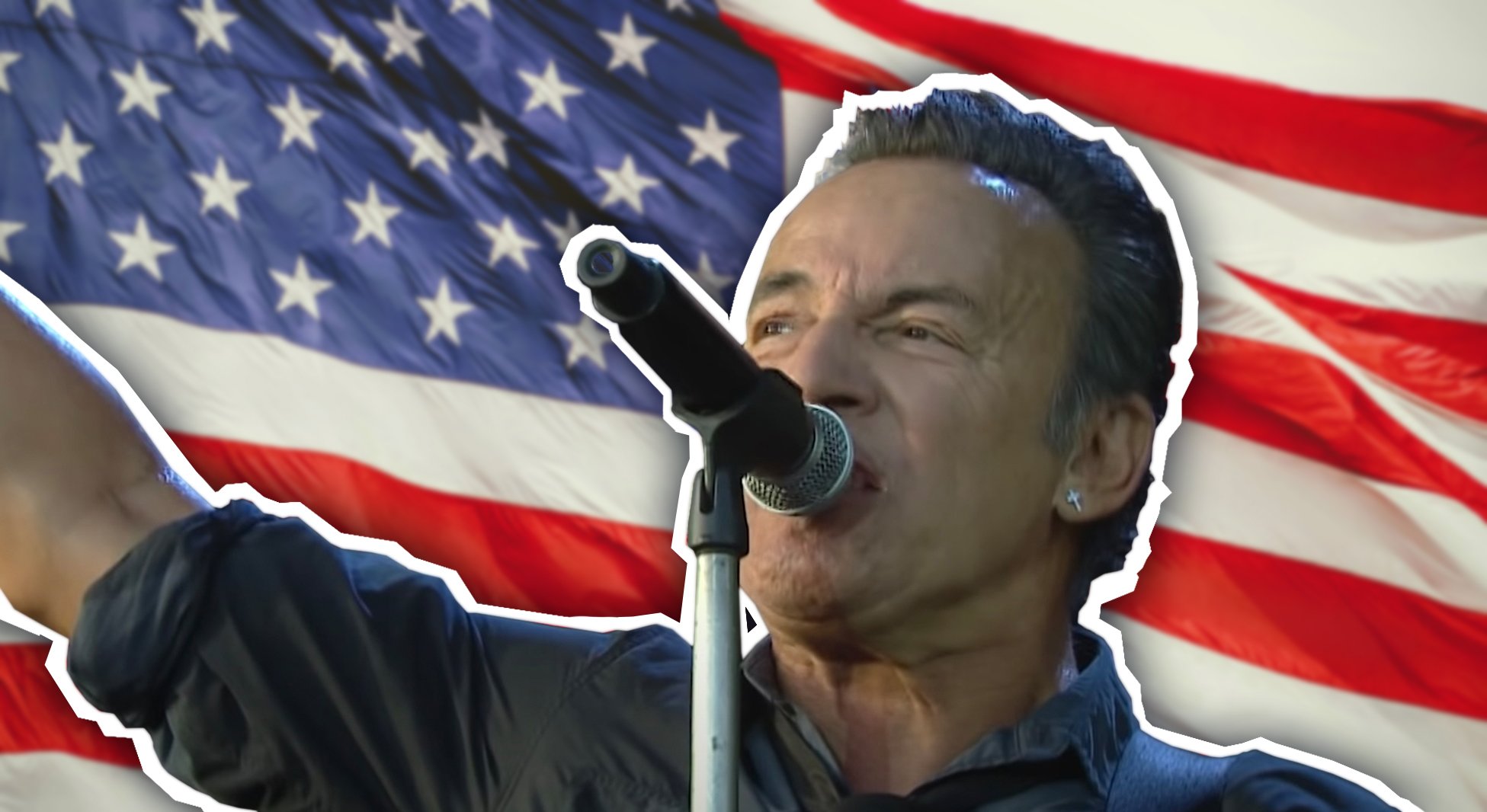
The real meaning of “Born in the U.S.A.” is often overlooked. Composite by Coffee or Die Magazine.
The catchy refrain of bluesy rock guitar and The Boss’s ragged baritone voice make Bruce Springsteen’s “Born in the U.S.A.” a go-to jam for many Americans during patriotic events and celebrations. Ironically, the hit song actually isn’t the ultra-patriotic anthem it’s often passed off as.
Released in 1984, The Boss’s heartland-rock hit is certified gold. It’s an undeniable rock ’n’ roll classic. Ronald Reagan, one of the first Americans to misrepresent the song’s message, referenced it during his 1984 presidential campaign, and it’s been widely misunderstood by many as a song that celebrates the gift of being born an American citizen.
The truth is, it’s an explicitly anti-war song that highlights how America failed Vietnam veterans.
The lyrics plainly spell out Springsteen’s disenchanted view of the war. The second stanza kicks off with a soldier enlisting as an alternative to penal punishment, rather than volunteering out of a noble sense of duty. On top of that, he doesn’t describe the war as some domino-theory solution to containing communism. Instead, he offers a blunt, hyperbolic view of the soldier’s motivation and American foreign policy in the 1960s and ’70s:
“So they put a rifle in my hand / Sent me off to a foreign land / To go and kill the yellow man,” Springsteen croons.
It strays even further from Reagan’s hard-line foreign policy views in the fourth verse. The song describes losing a “brother” at Khe Sanh. It points out that when the fighting finally ends, the Viet Cong remain, but his brother is gone. The implication is to ask, Was it worth it?
“I had a brother at Khe Sanh / Fighting off the Viet Cong / They’re still there / He’s all gone.”

The other two verses wedged between “born in the USA” being belted over and over tackle the mistreatment of Vietnam veterans.
The song tells of a war veteran coming home and struggling to get hired at his hometown’s oil refinery. The veteran then goes to see his local Veterans Affairs office and is met with an apology and zero help.
Even though the VA has drastically improved since Vietnam, and America’s 20-year war in Afghanistan likely prevented further terrorist attacks, Springsteen’s words of disillusionment feel timely today.
But whether fans of the rock anthem are hawks or doves — or are not easily filtered into one camp or the other — Springsteen’s bestselling album of the same name is still worth throwing on the record player (or more accurately, cueing up on Spotify). The Boss remains a rock legend, and the booming chorus of “Born in the U.S.A.” is still a classic. It’s just a bit more complicated when you pay attention to the lyrics.
Read Next: Before Creating Willy Wonka, Roald Dahl Was a Nazi-Killing Spy in World War II

Mac Caltrider is a senior staff writer for Coffee or Die Magazine. He served in the US Marine Corps and is a former police officer. Caltrider earned his bachelor’s degree in history and now reads anything he can get his hands on. He is also the creator of Pipes & Pages, a site intended to increase readership among enlisted troops. Caltrider spends most of his time reading, writing, and waging a one-man war against premature hair loss.
BRCC and Bad Moon Print Press team up for an exclusive, limited-edition T-shirt design!
BRCC partners with Team Room Design for an exclusive T-shirt release!
Thirty Seconds Out has partnered with BRCC for an exclusive shirt design invoking the God of Winter.
Lucas O'Hara of Grizzly Forge has teamed up with BRCC for a badass, exclusive Shirt Club T-shirt design featuring his most popular knife and tiomahawk.
Coffee or Die sits down with one of the graphic designers behind Black Rifle Coffee's signature look and vibe.
Biden will award the Medal of Honor to a Vietnam War Army helicopter pilot who risked his life to save a reconnaissance team from almost certain death.
Ever wonder how much Jack Mandaville would f*ck sh*t up if he went back in time? The American Revolution didn't even see him coming.
A nearly 200-year-old West Point time capsule that at first appeared to yield little more than dust contains hidden treasure, the US Military Academy said.












